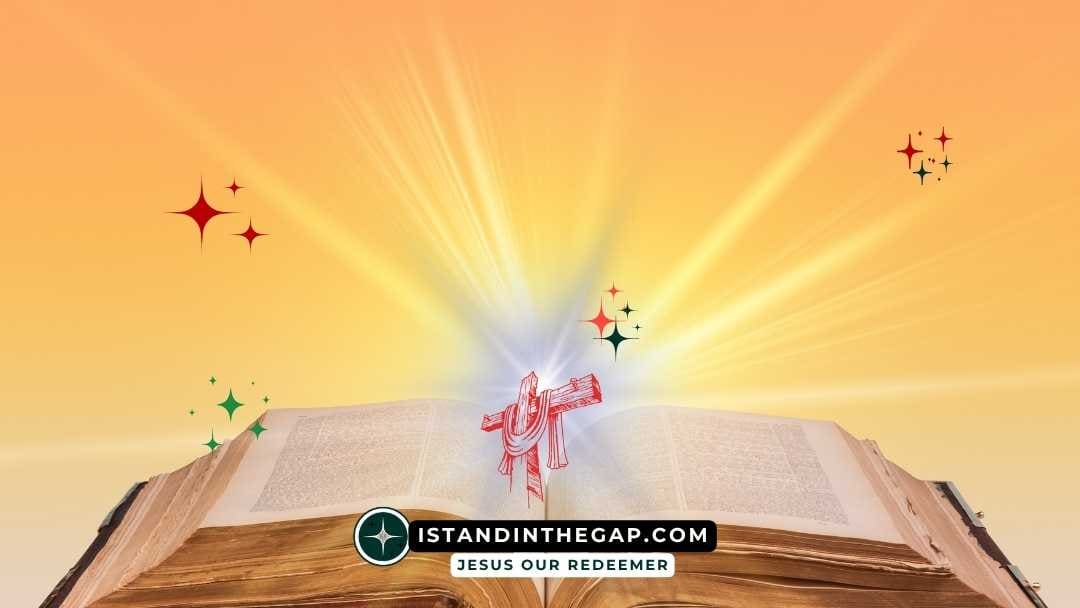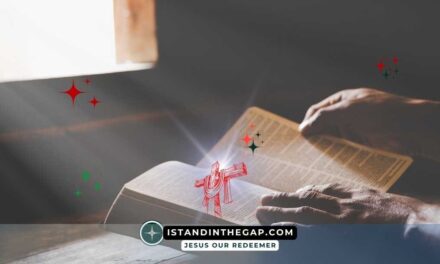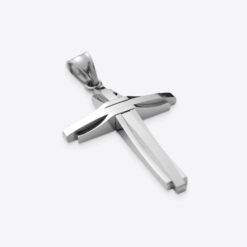Psalm 7 is a song by King David, called a Shiggaion, which suggests a passionate, even “wandering ode”. It is one of David’s laments, which is a prayer expressing distress and trust. In the title, we learn it was sung “concerning the words of Cush the Benjamite.”
Most scholars think David wrote it while fleeing from enemies (perhaps during King Saul’s reign).
In Psalm 7, we see David complaining of false accusations and calling on God, the righteous Judge, for protection and justice. In plain terms, it is David crying out to God for help because he trusts God completely, not seeking revenge himself.
In this Psalm 7 commentary, I will explain its background, structure, themes, and meaning. I want to show how this prayer encouraged David and how it speaks to us today.
Psalm 7 Commentary: Key takeaway:
- When we face unfair attacks or feel threatened, Psalm 7 reminds us to trust God as our defender. Instead of taking revenge, we can pray like David did, asking God to judge rightly and keep our hearts clean.
Historical Context
Psalm 7 is set in a time of conflict and danger for David. The title mentions “Cush the Benjamite,” who is not well-known in history.
- Some say Cush might have been a friend or courtier of Saul who spoke lies against David.
- Others think “Cush” could be a code name for King Saul himself (Saul was a Benjaminite, son of Kish).
In any case, David was being persecuted by powerful enemies – perhaps even by Saul the king.
One historical commentary notes that David wrote this psalm “in his wanderings, when he was obliged to hide himself from the fury of Saul.”
This fits perfectly the idea that David felt hunted and helpless.
The imagery of being torn by a lion (Psalm 7:2) suggests David saw his enemy as a fierce lion (Saul was compared to a lion).
Matthew Henry’s commentary also points out that the title suggests David faced “malicious imputations” – false charges – by his enemies.
In short, the historical backdrop is one of danger and injustice: David is a fugitive, crying out to God about lies and threats against him.
(Even if we don’t know every detail about Cush or the exact date, we know David trusted God as his refuge in a time of crisis.)
Literary Structure
Psalm 7 has 17 verses and follows a common pattern of lament. It can be roughly divided as follows:
- Verses 1-2: A plea for help. David begins by declaring his trust in God and begging for rescue from his enemies.
- Verses 3-5: A protest of innocence. David asks God to punish him if he truly sinned or wronged anyone. He is basically saying, “If I lied or hurt anyone without cause, let it be my punishment.”
- Verses 6-9: A cry for God’s judgment. David calls on God to “arise” against the enemies, to gather people for judgment, and to decide the case.
- Verses 10-12: A statement of confidence in God. David affirms that God is a righteous judge who protects the honest. “My defense is of God,” David says (v. 10).
- Verses 13-16: The destiny of the wicked. David describes how God has prepared weapons for the wicked, and how those who plot evil will ultimately fall into their own traps (v. 15-16).
- Verse 17: Praise and thanksgiving. Finally, David vows to thank and praise God for His righteousness.
This structure moves from complaint and plea (vv. 1-2), to self-examination (vv. 3-5), to calling on God to act (vv. 6-9), then to trust in God’s justice (vv.10-12), warning to evildoers (vv. 13-16), and closes with praise (v.17).
In form, Psalm 7 combines features of a lament (crying out in distress) with an imprecatory element (asking God to judge the wicked).
Some scholars note that Psalm 7 is a very “emotional” and “uneven” psalm (which matches the term Shiggaion).
It doesn’t follow a strict poetic meter but moves through various thoughts and tones, from fear to confidence to anger to worship. It’s like a heartfelt monologue, David prayed to God.
Key Themes
Several major themes run through Psalm 7:
- Trust in God as Refuge: David repeatedly places his hope in the LORD. Right at the start, he says, “O LORD my God, in You I put my trust” (v.1).
- He sees God as a safe shelter or fortress. This theme is about relying on God, not on human strength, for deliverance.
- Righteousness and Integrity: David insists he has done wrong to no one. He appeals to God based on his integrity (v.3-5). He values a clear conscience. God being a righteous judge (v.11) means He looks at the heart; David wants God to vindicate (clear) him according to his honesty (v.8).
- A connected theme is self-examination: David asks God to search him if he has truly done evil.
- Divine Justice: God as the ultimate Judge is central. David knows God sees all and will right wrongs. He calls on God to punish the wicked (v.6-9). This theme ties in with later verses, showing how evil returns to its own head (v.15-16).
- One study notes that “the wickedness of the wicked… will come to an end” under God’s judgment. In contrast, God upholds the just (v.9).
- Consequences for the Wicked: The psalm describes the fate of evildoers in detail. David uses imagery of weapons and traps: “He makes a pit and digs it out, and falls into the hole that he has made” (v.15). This theme reassures the innocent that God will deal with injustice.
- A BibleHub commentary explains. This reflects the biblical idea of retributive justice – the sinner is caught by his own sin.
- Worship and Praise: Even though most of the psalm is a plea, it ends in worship. David promises to thank and sing to God in verse 17.
- The underlying theme is that any deliverance or justice comes from God and is an act worthy of praise. The psalm moves from anguished prayer to confident praise.
In summary, Psalm 7’s key themes are trusting God’s protection, insisting on righteousness and innocence, calling for God’s justice, warning that evil returns on itself, and worshiping God’s character.
Key Verses
A few verses stand out as especially significant:
- Psalm 7:1-2: “O LORD my God, in You I take refuge; save me… lest they tear me like a lion.” (ESV)
- Here, David declares total trust in God and asks for rescue. The vivid image of a lion tearing its prey shows how desperate David felt. These opening lines set the tone: God is the shelter for the needy.
- Psalm 7:3-5: “O LORD my God, if I have done this… let the enemy pursue my soul… and lay my life in the dust. Selah.”
- In these verses, David offers a kind of self-curse, saying if he truly sinned, let him be punished. It’s a way of saying, “I’m innocent, do with me as you will if I’m wrong.” The Selah (a pause) after verse 5 gives weight to his solemn oath.
- The key point is David’s confidence in his innocence and his appeal for God to examine him.
- Psalm 7:8-9: “The LORD judges the peoples; judge me, O LORD, according to my righteousness.”
- David calls on God to act as judge of the nations. He essentially says, “Let God judge me honestly.” He isn’t asking for mercy but for fairness, which is a way of affirming he believes God will prove his case.
- This shows both David’s confidence in God’s perfect justice and his own desire to be proven blameless.
- Psalm 7:10: “My defense is of God, who saves the upright in heart.”
- This is a powerful statement of faith. David declares that God Himself is his protector (“shield”). The “upright in heart” theme shows up again: those who live with integrity can trust God to deliver them.
- The BibleHub study notes that this verse highlights God as the savior of honest people.
- Psalm 7:17: “I will give to the LORD the thanks due to his righteousness, and I will sing praise…”
- After the trial of the previous verses, David closes with gratitude. He will thank God for His righteousness – meaning God’s fair and just character – and sing His praise.
- This final verse shows that no matter the situation, our response should include praising God’s goodness.
Each of these verses illustrates a theme: trust, innocence, divine justice, protection, and praise. They capture the spirit of Psalm 7 in memorable phrases.
Interpretation
I interpret Psalm 7 as David’s heartfelt appeal to God when facing slander or attack. David is expressing deep emotion – fear, indignation, and faith – but always turning to God.
The psalm shows that David does not take revenge himself. Instead, he lays the case before God and even asks God to be the judge (“Arise, O Lord, in your anger…” v.6).
This is in line with later biblical teaching (for example, Romans 12:19 says “Vengeance is mine, I will repay”, echoes Psalm 7’s idea of leaving judgment to God).
A key part of the interpretation is David’s self-challenge in verses 3-5. He’s basically saying, “O God, if I did this or that wrong, then let me suffer. But I haven’t, so please do justice for me.”
This shows total humility. He invites God to probe his heart, and it emphasizes his trust that God will clear his name. Many commentaries note that David knows his own faults (he’s not claiming to be perfect), but he’s certain he’s not guilty of these specific charges.
Another interpretation angle is that the psalm moves from personal plea to universal truth.
In verses 10-12, David talks about how God treats all the righteous and wicked. He’s not just praying for himself now, but praising God’s character. He says God sees all hearts (“God who knows the hearts” v.9) and that the wicked will be cut down.
It almost shifts from first person to third person narrative about God’s actions.
For the original audience (ancient Israel), this psalm would have been a reminder that God defends His anointed or His people.
For us today, the meaning is similar: when we suffer injustice, we can appeal to God rather than fighting back sinfully.
David’s request that God search his heart is a call to personal integrity as well as confidence in God’s trial. It tells us it’s okay to pray boldly about injustice, but also to be willing to admit any fault on our side.
In my view, an important part of interpretation is the balance of humility and boldness. David boldly asks God to judge his enemies and even to protect him as a warrior might. Yet he humbly says if he’s guilty, let him be judged by the same standard.
It shows respect for God’s honesty more than a mere plea for protection. It encourages us to be honest when we pray, asking for the right outcomes but keeping our conscience clean.
Relevance for Christians Today
Psalm 7 remains relevant for modern Christians because we still face injustice, slander, or threats in many forms.
Maybe someone spreads rumors about us, or we feel attacked at work, online, or in society.
In those situations, we might feel like David did: “torn like a lion”.
This psalm tells us we are not alone: God is our refuge and can handle things beyond our control.
One big lesson is trusting God instead of seeking revenge. In today’s world, it can be tempting to retaliate or become bitter when wronged. But Psalm 7 calls us to trust God’s timing and fairness.
As BibleRef commentary notes, David “calls on God to issue judgment” rather than acting himself. This mirrors the New Testament teaching not to repay evil for evil (Romans 12:19) – something very practical for modern life.
Also, Psalm 7 encourages self-reflection. Verses 3-5 can teach us to ask God if we’ve done anything to deserve our trouble. Sometimes conflicts come from misunderstandings or our own mistakes.
David’s example shows healthy humility: “Search me, O God” (though he doesn’t use those exact words here). This is still wise: before blaming others, check your own heart.
Psalm 7 also reassures us that God cares about justice. When systems fail or it seems like wicked people succeed, we can remember that God has a plan. The psalm reminds us He will not forget wrongdoing.
As one study suggests, it even offers “comfort for those who feel wronged”. It teaches patience in waiting for God’s justice, which is valuable in a fast-paced world.
Finally, the psalm’s end in praise is a powerful application: it urges us to praise God despite problems. Trusting God as our defender means we can still thank Him and worship Him, believing He is righteous.
The movement from complaint to confidence is something we can experience when we pray through our struggles.
Application
Applying Psalm 7 today means turning its truths into action in our lives. Here are a few practical ideas:
- Pray Honestly: When I face trouble, I can pray like David did. I can tell God my fears (even using vivid images if I feel that way) and ask for deliverance. I can also honestly say, “Lord, if I’m wrong, let me face the consequences,” while knowing He’s merciful. This keeps me truthful before God.
- Seek God, Not Vengeance: Instead of trying to “settle the score” myself, I remember Psalm 7 and leave the matter with God. If I’m tempted to gossip back or undermine someone, I might recall David’s restraint. The psalm encourages me to avoid taking matters into my own hands and instead ask God to handle injustices.
- Reflect on Integrity: Verses 3-5 teach a good habit: checking my own heart. When I feel attacked, I can ask God to search me for any fault. Maybe I’ve done something unknowingly to contribute. If needed, I can confess and make it right. This keeps my conscience clear and my relationship with God honest.
- Trust in God’s Protection: Remember verse 10’s promise that God defends the upright. This gives me confidence: I’m not alone. I can lean on God, read His word, and claim His protection. In practical terms, that means not living in fear – I can still serve, work, and live boldly, knowing God is my shield.
- Pray for Justice (and Forgiveness): Psalm 7 ends with praise, but it also implies trust that God will “establish the righteous”. I can pray for justice in my situation, but also pray that God changes hearts. Interestingly, a study of Psalm 7 suggests praying even for the ability to forgive those who wrong us. Holding onto anger only hurts us. The psalm indirectly leads me to pray for the strength to forgive, knowing I’ve asked God to vindicate me.
- Praise God, ultimately: Even as I pray for help, I follow David’s example of ending with worship. After prayers for help, I remember to thank God for who He is. This might mean singing a worship song, keeping a gratitude journal, or simply expressing thanks. Recognizing God’s righteousness as David did (v.17) can bring peace no matter the outcome.
A practical application: if someone spreads a false rumor about me at school or work, I could quietly pray Psalm 7:
“Lord, I trust You, save me from those who persecute me. I don’t deserve this harm; if I’ve done wrong, please correct me. But if I’m innocent, let this lie be exposed.”
Then I would hold my peace, trust God’s timing, and focus on being honest in my own life, rather than reacting in anger. It might also lead me to pray for the person who lied, asking God to change their heart.
In summary, Psalm 7 tells me to turn to God for refuge, keep my own hands clean, and trust God to handle the injustice.
This has practical power: it guards me from bitterness and reminds me I serve a just God who rewards those who trust Him.
Verse-by-Verse Explanation
To see how this works in detail, let’s look at Psalm 7, grouping some verses:
Verses 1–2 (Prayer for Protection):
David begins by kneeling before God: “O LORD my God, in you I put my trust; save me from all those who persecute me” (v.1).
In my own words, he’s saying, “God, I trust only You now, rescue me!” Then he paints a scary picture in verse 2: “Lest like a lion they tear my soul apart…”
Commentators note the lion image reflects how ferocious his enemy (Saul or his men) seemed. It’s as if David says, “Without You, I’m helpless against this lion.” I think of how helpless we feel when a strong person or system is against us.
David’s language is urgent and vivid: he doesn’t just ask for help, he begs not to be shredded like an animal.
In short, these verses set the scene: David is under severe threat, and he immediately seeks God’s refuge. He shows no pride; he simply trusts in God’s power.
Verses 3–5 (Self-Examination and Protest of Innocence):
Now, David addresses God’s court metaphorically. He says, essentially:
“O LORD, if I have done wrong…” (v.3).
He lists possible sins: taking back evil for good or robbing an enemy (v.4). Then he says, “Let the enemy pursue me and trample me if I have done this” (v.5). This sounds strange at first – David seems to be cursing himself if he lied.
But really, he’s making a bold point: He is so sure of his innocence in this matter, he offers to be punished if proven guilty.
One commentator explains that by inviting this punishment, David is highlighting his confidence that these accusations are false.
It’s like someone today saying, “Take me to court if I lied, because I know I’m telling the truth.”
In practice, this part teaches humility and honesty. David is saying, “Search me, God; if I’ve sinned here, deal with me.” If I apply it, I might pray, “God, if I have inadvertently hurt anyone or sinned, please forgive me.”
It shows he’s not blaming everything on others; he’s opening his heart to God’s scrutiny.
Verses 6–9 (Invocation of God’s Judgment):
Having stated his case, David now calls on God to act:
“Arise, O LORD, in your anger; rise up for me against the fury of my enemies” (v.6).
He pictures God coming to the scene of judgment.
Verse 7 mentions “the assembly of the peoples”.
David seems to ask God to gather people (maybe Israel or creation) as witnesses and to judge the dispute.
Verses 8–9 shift to a more general tone: “The LORD judges the peoples; judge me, O LORD, according to my righteousness” (v.8).
David is confident God will test hearts and minds (v.9), implying that God will see he’s sincere. He prays for evil to end and for God to establish the just (v.9).
In other words: “God, you know my heart. You see the wickedness going on. Put an end to it and honor the righteous.”
At this point, the attitude is both urgent and declarative. It’s urgent because he’s in danger; it’s declarative because he’s asserting God’s role as universal judge. He’s not just a victim now, but is representing all innocent people.
It reminds me that God is not only concerned with my little problem, but He is the Judge over all people, and He cares about truth.
Verses 10–12 (God’s Character and the Fate of the Wicked):
Here, David expresses complete trust: “My shield is with God, who saves the upright in heart” (v.10). He is saying, “I have nothing to fear, because God protects those who live right.”
Then in verse 11: “God is a righteous judge; a God who has indignation every day.” David is effectively praising God’s justice. He is fair and even angry at injustice.
Together, these verses are a calm affirmation: even as David called God to act in v.6-9, he now states faith in God’s plan. It’s as if he believes God already will do the right thing.
The idea of God being angry every day at the wicked (v.11) assures us that God is ready to punish evil, even if He waits. This gives David (and us) peace: God is attentive.
Verses 13–16 (The Wicked Will Be Judged by Their Own Schemes):
The psalm now describes what happens to evildoers.
Verses 13–14 portray God as a warrior: He’s been sharpening His sword and setting up a bow against the wicked.
Verses 15–16 say the wicked dig a pit and fall into it, and their mischief returns on their own heads.
In simple terms, David (or the psalmist) is saying: God prepares defeat for the wicked. The ones plotting evil will be ensnared by their own devices. This imagery is meant to comfort the innocent and shows a sort of natural justice.
A commentator summarizes, “the evil person deliberately instigates evil, and the end for the wicked person is to suffer from their own sins… even the traps they lay will be part of the judgment against them”.
For me, this part is like a final assurance: I can trust that God’s moral law is built into the world; wrongdoing eventually backfires. It doesn’t mean God is a cosmic villain; rather, He has set things up so that evil is self-destructive (and He can intervene when needed).
It ends the legal metaphor with a clear statement: if my enemies are wicked, they won’t triumph.
Verse 17 (Thanksgiving and Praise):
Finally, David says he will give thanks to the Lord for His righteousness and sing praise to the LORD Most High (v.17).
This ties back to verse 10: God’s righteousness is not only a legal standard, but a reason for thankfulness. After all the fear and conflict, David’s heart overflows with gratitude.
This ending verse shows the purpose: Psalm 7 isn’t just about rescue but about recognizing God’s holiness. Despite everything, David’s response is worship. Even if the question of justice remains, he will still praise God’s name.
For us, verse 17 is a reminder that the ultimate goal of prayer is a relationship with God, not just getting our way.
This verse-by-verse look shows how Psalm 7 moves from intense personal crisis to universal truth and finally to worship. Each part of the psalm has its own role: we learn trust, honesty, and hope from David’s words.
I’m encouraged to approach God with all my emotions, knowing He will hear and act justly.
Conclusion
Psalm 7 is a powerful prayer of King David that teaches us to trust God’s justice and protection when facing false accusations or threats. As I have explored, the psalm’s background shows David as a fugitive beset by enemies.
Its structure leads us through David’s plea, his confident appeal to God’s fairness, and finally to his vow of praise. The main themes are faith in God as refuge, the importance of righteousness, and hope in divine judgment, which speak directly to our struggles.
In a commentary on Psalm 7, we learn that the real hero is God. He is shown to be “the righteous Judge” (v.11), whose just character ensures that evil will be punished and the innocent will be vindicated.
The psalm reminds us that it’s right to call on God in prayer, but we must also “keep the integrity of our own hearts” as we do so.
For Christians today, Psalm 7 is still significant: it encourages us to seek God’s help rather than taking revenge, to examine our conscience, and to remember that God sees all.
When we feel “torn apart” by injustice, we can echo David and say, “In You I take refuge” (v.1).
And like David, we can conclude by giving thanks: God’s righteous character is always worthy of praise.
A Prayer Inspired by Psalm 7
Merciful Father, I come to You like David, troubled by those who persecute me. O Lord my God, in You I put my trust. Save me from enemies and false accusations.
Search my heart, Lord, and if I have wronged anyone, let me face the consequences. But if I am innocent, vindicate me according to Your perfect justice.
Arise, O Lord, in Your anger at the injustice I face. Let Your people see Your righteous judgment. You are a just God who knows my heart; let Your strength defend me. I trust that “My defense is of God, who saves the upright in heart” (Ps. 7:10). I leave this matter in Your hands, knowing You will handle it rightly.
Finally, Lord, I promise to praise You and give thanks to Your name. For You are high above all, and Your righteousness endures forever. Even now I will sing praise to the LORD Most High, because You are my refuge and fortress.
In Jesus’ name, Amen.
FAQs about Psalm 7
Who wrote Psalm 7 and when?
King David is traditionally listed as the author of Psalm 7. The exact date isn’t certain, but it was likely during a time David was fleeing enemies, possibly when he was on the run from King Saul.
The title mentions “Cush the Benjamite,” suggesting one who attacked David (some say this could refer to Saul himself). So it’s often seen as from David’s wilderness period.
What does “Cush the Benjamite” mean?
“Cush” was a man from the tribe of Benjamin (Benjamite). In historical commentary, some think Cush could be a en.wikisource.org (Saul was of Benjamin).
Others say Cush might be Shimei (who cursed David in 2 Samuel) or an unknown Benjamite accusing David. The exact identity is unclear, but the point is that David is responding to the “words” or accusations of a believer of Saul.
Why does David speak of being torn like a lion?
The lion image in verses 1-2 (or 2 in some translations) is a metaphor for David’s enemy.
Lions are fierce and powerful, so David felt as helpless as prey against them. Many commentators believe Saul was seen as a lion (king of beasts) chasing David, or that David’s enemies were as ruthless as lions. It emphasizes the danger David felt and his need for God’s deliverance.
Does Psalm 7 encourage revenge or violence?
No, Psalm 7 encourages leaving vengeance to God, not taking it personally. David does call on God to judge the wicked (v.6-9), but he trusts God to do it perfectly.
He even humbly offers himself to punishment if he’s done wrong (v.3-5). In modern terms, David is saying, “God, deal with them, I’m not handling it.”
This reflects a theme of trusting God’s justice (see Romans 12:19, which echoes this idea). The psalm is often used to teach believers to pray for enemies rather than fight with them in anger.
How can I apply Psalm 7 to my life?
In many ways!
First, use Psalm 7 as a prayer when you feel unfairly treated: express your fears to God and ask for His help, just as David did.
Second, be honest with God about your own faults (as David offered to be punished if he was wrong).
Third, trust God’s justice: don’t seek revenge or hold onto bitterness. Instead, pray for God’s intervention and forgiveness for others.
Finally, remember the outcome – like David, end your prayers with praise, trusting that God will make things right in His time.
References
BibleHub. (n.d.). Psalm 7 commentary. Retrieved July 7, 2025, from https://biblehub.com/commentaries/psalms/7-1.htm
BibleRef. (n.d.). Psalm 7 commentary. Retrieved July 7, 2025, from https://www.bibleref.com/Psalms/7/Psalm-7-1.html
Blue Letter Bible. (n.d.). Study resources for Psalm 7. Retrieved July 7, 2025, from https://www.blueletterbible.org
Calvin, J. (1845). Commentary on the Book of Psalms: Psalm 7 (J. Anderson, Trans.). Calvin Translation Society. Retrieved from https://www.ccel.org/ccel/calvin/calcom08.xviii.html
Henry, M. (1991). Matthew Henry’s commentary on the whole Bible: Psalm 7. Hendrickson Publishers. Retrieved from https://www.biblestudytools.com/commentaries/matthew-henry-complete/psalms/7.html
Keil, C. F., & Delitzsch, F. (1867). Biblical commentary on the Old Testament: Psalms (J. Martin Luther, Trans.). T & T Clark. Retrieved from https://biblehub.com/commentaries/kad/psalms/7.htm
Spurgeon, C. H. (n.d.). The treasury of David: Psalm 7. Retrieved July 7, 2025, from https://www.spurgeon.org/resource-library/psalms/psalm-7
Wilcock, M. (2001). The message of Psalms 1–72: Songs for the people of God. IVP Academic.

















